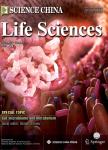Sodium cantharidinate,a novel anti-pancreatic cancer agent that activates functional p53
Sodium cantharidinate, a novel anti-pancreatic cancer agent that activates functional p53作者机构:State Key Laboratory of Natural MedicinesChina Pharmaceutical UniversityNanjing 210009China Jiangsu Key Laboratory of Drug Discovery for Metabolic DiseasesChina Pharmaceutical UniversityNanjing 210009China Department of Pancreatic SurgeryHuashan HospitalFudan UniversityShanghai 200040China
出 版 物:《Science China(Life Sciences)》 (中国科学(生命科学英文版))
年 卷 期:2021年第64卷第8期
页 面:1295-1310页
核心收录:
学科分类:1007[医学-药学(可授医学、理学学位)] 10[医学]
基 金:supported by the National Key R&D Program of China(2019YFC1711000 to P.L.) the National Natural Science Foundation of China(81772566 to J.L.) in part by the Project Program of State Key Laboratory of Natural Medicines,China Pharmaceutical University(SKLNMZZCX201820 to X.X.) the"Double First-Class"University Project(CPU2018GF04 to XX)
摘 要:Despite the use of many types of chemotherapies for pancreatic cancer, optimal efficacy has not been obtained so far. Pancreatic cancer shows a high incidence of TP53 mutations, inactivating its tumor suppressor activity. In this study, we identified sodium cantharidinate as a novel, potential anti-pancreatic cancer agent that activates p53 function. Sodium cantharidinate reduced the viability of pancreatic cancer cells, including the human primary pancreatic cancer cells, PANC-1, As PC-1, SW1990 and BXPC-3, in a dose-dependent manner. Sodium cantharidinate induced apoptosis and DNA damage of pancreatic cancer cells. Furthermore, proteome-wide sequencing analysis detected a marked perturbation in p53 signaling pathway on PANC-1 cells upon sodium cantharidinate. Consistent with the previous results, sodium cantharidinate treatment decreased Bcl-2 and mitochondrial cytochrome-c protein expression, as well as phosphorylation of MDM2;meanwhile, it increased the levels of cleaved-caspase-3,cleaved-caspase-9, cleaved-PARP, Bax, and phosphorylated p53, thus inducing the apoptosis of pancreatic cancer cells. The p53-activating effect of sodium cantharidinate was strongly abrogated by treatment with TP53-targeting sh RNA. Moreover, sodium cantharidinate inhibited neoplasm growth via the JAK2-STAT3 pathway, which was inhibited by sh RNA-TP53 and triggered by combination with gemcitabine. Combination therapy indicated that sodium cantharidinate and gemcitabine synergistically reduced ex vivo and in vivo growth of pancreatic neoplasm. Further docking studies revealed the different binding fates of sodium cantharidinate to activate wild-type p53 function. Thus, sodium cantharidinate could be a potential agent with promising anti-pancreatic cancer efficacy.



